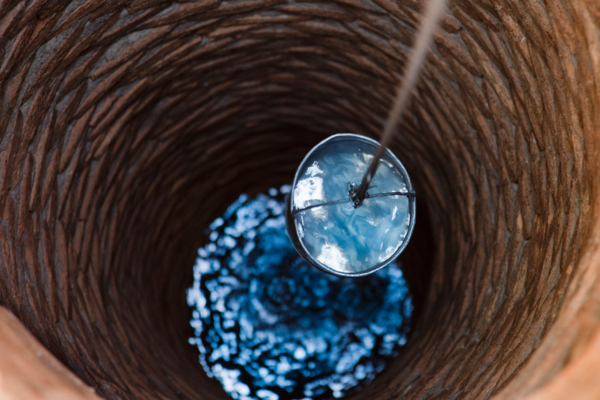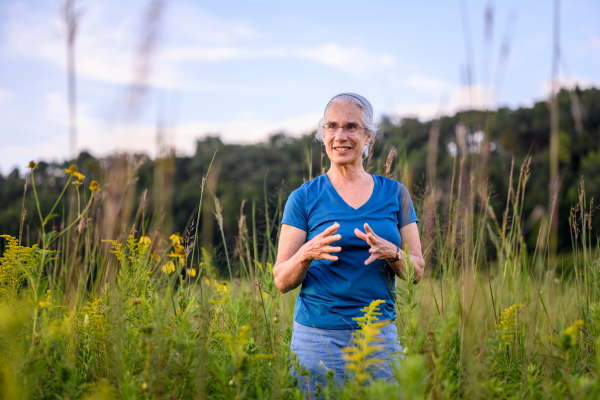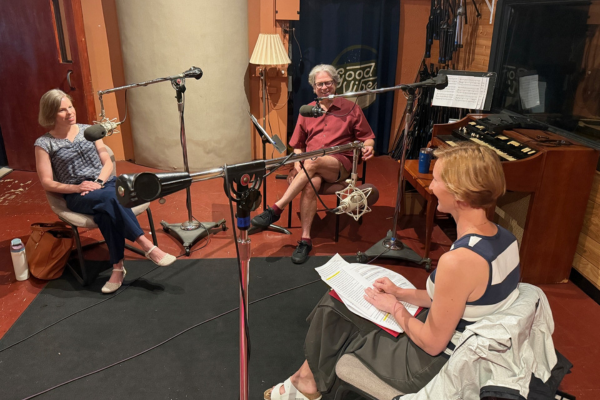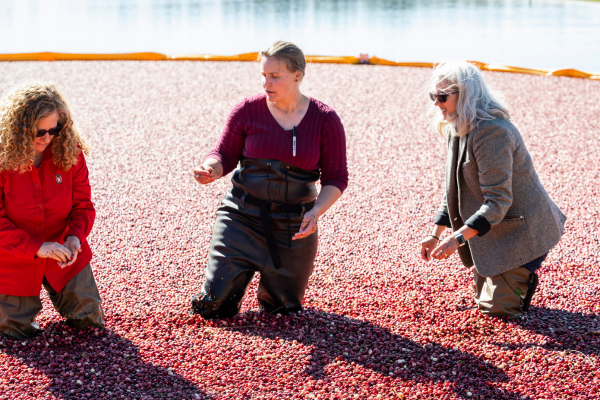Badger Talks Quick Picks
Water WELLness: Managing your private well water system

This is an accordion element with a series of buttons that open and close related content panels.
Talk description
News about water may have rural Wisconsin residents wondering about the quality of water in their private wells. Deciding what and how often to test, or what to do when problems exist are the types of decisions that well owners may have questions about. This talk will provide useful information on managing your household’s water system.
About the speaker
Kevin Masarik is an Extension specialist and Director of the Center for Watershed Science and Education. His extension teaching and research focuses on groundwater and drinking water quality education targeted toward populations served by rural residential well water systems. Other aspects of his work include understanding the relationship between agricultural land use and water quality, geologically related groundwater contaminants, and utilizing the Center’s well water data to educate the public about important groundwater quality concerns where they live.
Wisconsin Bumble Bee Conservation

This is an accordion element with a series of buttons that open and close related content panels.
Talk description
In Wisconsin, 20 native bumble bee species are key pollinators of native plants and some food crops. Help protect bumble bees by creating habitat, avoiding pesticide use, documenting bees via photography, and inspiring others. When we connect habitats, share our sightings statewide, and participate in broader conservation groups, we support bumble bees in healthy landscapes.
About the speaker
Susan Carpenter is the Native Plant Garden curator and gardener at the UW Arboretum. With students and community volunteers, she manages and monitors a 4-acre garden representing plant communities of southern Wisconsin. She leads students and the public in documenting and studying native bumble bees, including the endangered rusty-patched bumble bee.
Badger Talks Podcast
Main Street Agenda: Bringing Civility to Political Discourse

This is an accordion element with a series of buttons that open and close related content panels.
Podcast description
Buzz Kemper speaks with Amber Wichowsky and Susan Webb Yackee about the La Follette School of Public Affairs program Main Street Agenda. The goal of the project is to raise awareness about issues Wisconsin residents are concerned about via group discussion and town hall meetings, keeping the discussions civil and on point.
About the speakers
Susan Webb Yackee is Director of the La Follette School of Public Affairs and a Collins-Bascom Professor of Public Affairs at UW–Madison. Her research and teaching interests include the U.S. public policymaking process, public management, regulation, health policy, and interest group politics. Yackee has published widely and is an elected member of the National Academy of Public Administration. In 2023, Yackee was appointed as a public member of the Administrative Conference of the United States (ACUS). She worked as a legislative research assistant in the U.S. Senate before beginning her academic training.
Amber Wichowsky is an Associate Professor of Public Affairs and holds the Leadership Wisconsin Endowed Chair for the Division of Extension. Her research explores how individuals and communities engage contentious and complex public issues and the social and institutional contexts that shape their civic engagement. Professor Wichowsky received her PhD from the University of Wisconsin–Madison and was a Postdoctoral Associate at Yale University’s Center for the Study of American Politics. She previously worked at the U.S. Office of Management and Budget in Washington, D.C.
We're Number One! What makes Wisconsin the top cranberry producer in the world.

This is an accordion element with a series of buttons that open and close related content panels.
Podcast description
In this episode, Buzz Kemper talks with Allison Jonjak, MS, CCA: Cranberry Outreach Specialist at the University of Wisconsin-Madison about cranberries, and how Wisconsin remains the #1 producer in the world.
About the speaker
Allison grew up on a cranberry marsh founded by her grandfather in 1939. Studying ag engineering and soil chemistry, she worked with row crop farmers throughout the US and Canada, until the University of Wisconsin created a Cranberry Outreach Specialist position. This allowed Allison to return to her favorite state, and work keeping a tight feedback loop between growers and researchers of her favorite crop.
